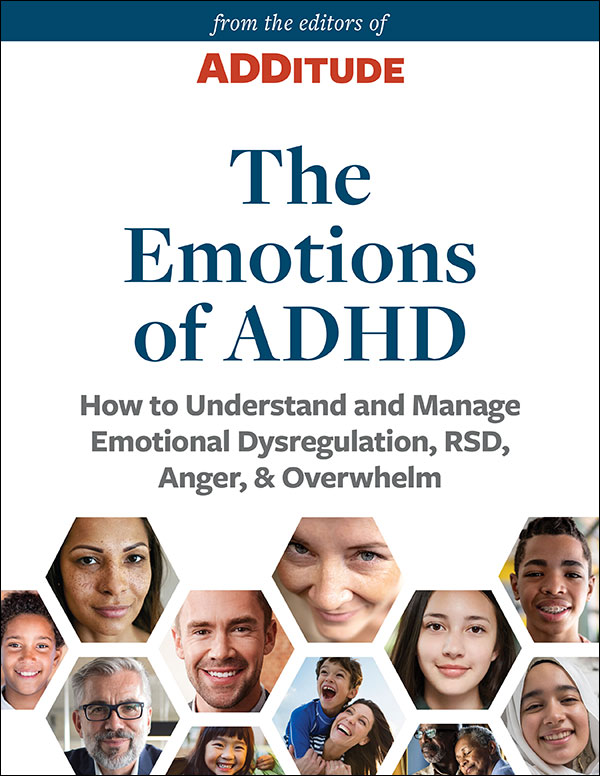“How I Dismantle My RSD with Mindfulness”
“I don’t always get it right, and RSD sometimes gets the best of me, but regularly practicing mindfulness has undoubtedly upped my emotional resilience. Most importantly, I’m learning to be gentle with myself.”
Rejection sensitive dysphoria (RSD) is by far the most debilitating aspect of living with ADHD for me. It manifests as extreme anxiety around possible criticism, embarrassment, or disapproval from others. Minor interactions can send me spiraling with self-doubt for hours as I obsessively analyze every word and facial expression for traces of negativity.
RSD makes everyday, non-threatening social encounters incredibly stressful. Because of RSD, I’ve missed one too many social activities to avoid dealing with the emotional fallout of potential rejection. Horrified that I would say or do something wrong, I would decline invitations from friends or skip optional work activities. My friendships and intimate relationships suffered as a result.
A change of plans, even if rational, would send me into a panic. My mind raced with catastrophic worst-case scenarios – beyond “this person doesn’t like me.” I scanned facial expressions for the slightest hint of negativity to confirm my irrational thoughts. At work, I second-guessed every decision and comment from coworkers, constantly fearing I’d be fired. As someone highly sensitive to feedback due to ADHD, perceived rejection or even constructive criticism felt unbearable and left deep emotional wounds.
Overcoming Rejection Sensitivity with Mindfulness
It took realizing that I was experiencing RSD in the first place for things to improvement to begin. Awareness of the biological roots of my intense reactions helped reduce my shame over what felt like a personal failing. But knowledge alone doesn’t always curb anxious thoughts in the moment. That’s where mindfulness steps in.
Mindfulness teaches you to observe your thoughts and feelings in the present moment without judgment. The idea is this: Pausing to observe calms intense emotions and provides space to avoid getting carried away by them. Below, I share a few mindfulness practices that have helped me cope with RSD.
[Get This Free Download: Understanding Rejection Sensitive Dysphoria]
1. Get Moving
At first, I struggled to literally sit still with racing RSD-fueled thoughts for more than a few minutes. I learned that it’s easier to enter a state of mindfulness while I walk. As I walk, I notice physical sensations to anchor my attention to, like my every inhale and exhale and the contact my feet make against the ground. Tracking small details is such an effective distraction from worrying narratives. Over time, I was able to sustain non-reactive awareness for longer periods.
2. Thoughtfully Question
Mindfulness also helps me recognize the cognitive distortions behind RSD. I learned to question whether my perceptions line up with facts. Was someone really angry at me just because their voice sounded off? Why assume the worst with little evidence? Approaching each situation with the willingness to question my reactions, again and again, eventually grew easier.
3. Write It Out
What is writing, if not a pure exercise in mindfulness? The process of channeling thoughts onto paper forces me to slow down, name what I’m feeling, and eventually look for a balanced perspective rather than stew in emotion.
4. Kind Self-Talk
Whether you’re walking or writing, kind self-talk is part of mindfulness. The trick is breaking patterns of harsh criticism after setbacks and replacing those with a thought or two about what went well. Learning to notice and appreciating small social wins boosted my confidence and made future interactions easier.
[Read: The Power of Positive Self-Talk — Increase Productivity and Happiness]
Today, RSD still comes, but I’m armed with coping skills. When anxiety rises, I breathe deeply and shift focus outward rather than spiraling inward. I try my best to pause before I react and stretch the space between desire and action. I accept uncertainty instead of constantly seeking reassurance that only prolongs distress. I don’t always get it right, and RSD sometimes gets the best of me, but regularly practicing mindfulness has undoubtedly upped my emotional resilience. Most importantly, I’m learning to be gentle with myself.
Overcoming Rejection Sensitivity with ADHD: Next Steps
- Get This Free Download: Emotional Regulation & Anger Management Scripts
- Read: “I Can’t Handle Rejection. Will I Ever Change?”
- Read: How Fear of Failure & Rejection Keep Us from Trying New Things
SUPPORT ADDITUDE
Thank you for reading ADDitude. To support our mission of providing ADHD education and support, please consider subscribing. Your readership and support help make our content and outreach possible. Thank you.






